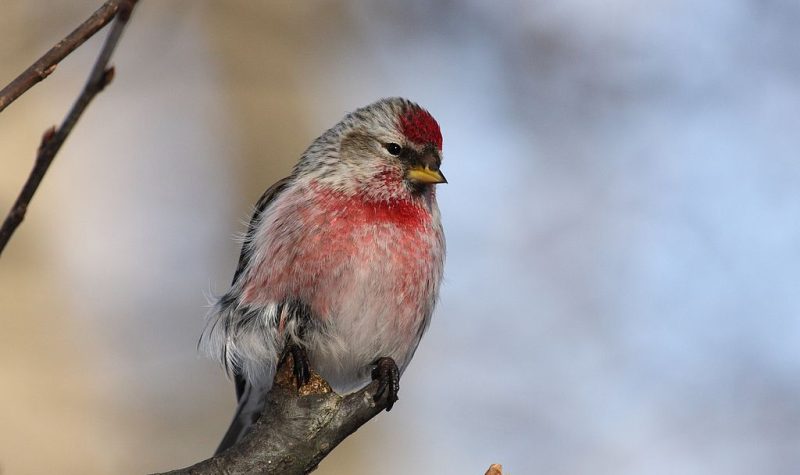There is currently no evidence that the Salmonella outbreak affecting small birds on Vancouver Island, the Lower Mainland and southern region of British Columbia has reached the Prince George area, says local avian ecologist and UNBC professor, Russ Dawson.
The BC SPCA confirms that the closest reported case is in Penticton, BC but caution that the disease can spread quickly among bird populations. Dawson, who is in contact with local birders, says he has not heard any reports locally so far.

Russ Dawson is an avian ecologist and UNBC professor. Photo credit Jeannine Randall. Courtesy of Russ Dawson.
Birds that are "gregarious" (that flock together) are particularly susceptible to transmission. The current reports from Penticton, Creston, and Cranbrook involve Pine Siskins, a small brown finch also common in Prince George. The north is certainly not immune to the risk. A 2002 Salmonella outbreak in Common Redpolls in the region resulted in a major population loss.
The BC SPCA and Dawson both recommend removing bird feeders, throwing out the contents and washing them thoroughly with a 10 per cent bleach solution regularly, at least every few days. According to Dawson, birds suffering from Salmonella poisoning are fairly easy to identify. They will be very lethargic, often sitting still on the ground with their feathers puffed up. As humans can easily contract Salmonella through contact with birds, it is important to wash hands after handling bird feeders, sick birds and dead birds.
Dawson says that while it is likely that some birds die of Salmonella every year, “whether we are going to see a great, big outbreak, that’s pretty tough to say. We possibly could." He suggests that households that choose to leave their bird feeders out disinfect them regularly, even if they are not seeing sick birds as birds can be carriers of the disease without showing symptoms.
To report a sick or dead bird, members of the public can contact the Canadian Wildlife Health Cooperative or the BC SPCA.
Listen to the interview With Dr. Russ Dawson on CFUR-FM:


